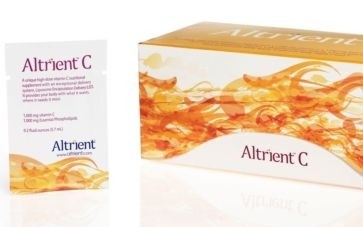Will vitamin C price fixing victory constrain future Chinese cartel behavior?

Jim Southwick of law firm Susman Godfrey, one of the co-lead counsels in the case, said the case proves that given perseverance—and deep pockets—individual companies can use the federal courts system to prevail against foreign cartels.
“I think that what this case proves is that private enforcement can succeed and can succeed fairly dramatically. What it doesn’t prove that the US will pursue cartels out of China in the same way that it will in other parts of the world,” Southwick told NutraIngredients-USA.
“I still don’t think that we are the place where anticompetitive behavior in mainland China is treated the same way as it is on other countries. I don’t know if that’s the fault of our government or of the Chinese government because they didn’t cooperate.
“This took eight years and it’s not over yet. There will probably be an appeal. Justice in the federal courts is not swift but it does generally give the correct result,” he said.
An ingredient long subject to price fixing
Vitamin C has been something of a case study in the international fixing of prices in the dietary supplement and food ingredient sectors. An earlier high-profile price fixing case alleging cartel vitamin price-fixing behavior on the part of some European and Japanese companies took place in the decade of the 1990s.
Ironically, it was Chinese companies that first broke this cartel at least as far as vitamin C was concerned. A more cost effective fermentation method was invented there, and in 1993 and 1994, cheaper vitamin C from China entered world wide markets.
“We don’t see a lot of low cost innovations in China. We see a lot of low cost production,” said John Connor, professor emeritus of Industrial Economics at Purdue University who has written extensively on global vitamin production.
“From the end of the cartel in about 1994 to about five years ago, 70% to 80% or maybe a little more of global vitamin C production moved to China,” he said.
Conditions ripe for a cartel
From a score or so companies of Chinese companies involved in vitamin C production in the early to mid ‘90s, the field narrowed to four or five, Connor said.
“Those are conditions ripe for the formation of a cartel,” Connor said. “Vitamin C is a homogenous product; price is the only consideration.”
“As I understand it this cartel came to light because fixing prices is so common and is accepted as part of the business culture in China,” Connor said. There was a committee of the vitamin C manufacturers, he said, that had posted minutes of its meetings for a year or two on the internet in which pricing was discussed. It was there that the other co-lead counsel in the case, William Isaacson, with law firm Boies, Schiller & Flexner, said he found them.
“There were about 20 or so companies in China making vitamin C. It was years later that some clients brought to my attention the consolidation that had happened in the market and what was happening to prices,” Issacson said.
Two companies settled early
In the judgment announced last week in New York against two Chinese companies, Hebei Welcome Pharmaceutical Co. Ltd. and North China Pharmaceutical Group Corp.m the jury returned a verdict of $54.1 million that was promptly tripled to $162.3 million, under US anti trust law. A portion of that amount—$22 million—will be borne by two other Chinese vitamin C manufacturers, Weisheng Pharmaceutical and China Pharmaceutical Group, that settled out of court earlier last week, Isaacson said.
The companies' main defense over the course of the case has been that they were ordered by the Chinese government to corner the market and raise prices. The jury didn’t buy it, Issacson said.
“If it were true it be an absolute defense” under US law, Isaacson said. “The jury expressly rejected that defense.”
Despite Southwick’s skepticism about whether the US government is willing to get tough with Chinese companies over price fixing schemes, both Issacson and Connor said the verdict could serve to constrain such behavior in the future.
“It’s a fascinating case. It shows how globalization is making life very difficult for cartels,” Connor said.
“Cartel enforcement has been going on for decades; this was the first case against Chinese companies. It makes it clear to these companies that they are subject ot the same laws as everybody else,” Issacson said.















